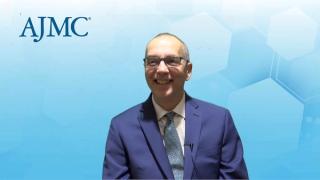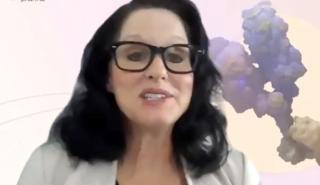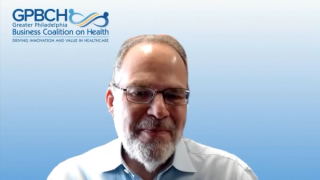
Health Care Cost
Latest News
Latest Videos

CME Content
More News

Analysis of 2012-2021 commercial claims demonstrates that spending growth was concentrated among the highest spenders and there was increasing subsidy across enrollees through cost-sharing design.

A heart failure program with a multidisciplinary team provides statistically significant improvements, and 2 countries determine the current prices of semaglutide are not cost-effective for secondary prevention of cardiovascular disease in patients with obesity, according to abstracts at the European Society of Cardiology (ESC) Congress 2024.

The obesity epidemic is a global crisis, with experts from around the world emphasizing the importance of short-term strategies, long-term solutions, and multidisciplinary collaboration as they advocate for the heart health of their patients.
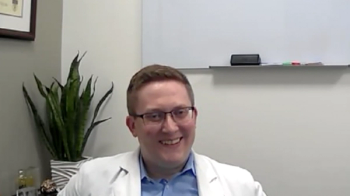
Jason Romancik, MD, a board-certified hematologist at Emory Winship Cancer Institute, discusses the current treatment landscape in aggressive lymphoma and drivers of high care costs.

Providing health care for Olympic athletes can put a heavy burden on both the competitors and their doctors to deliver that care and to pay for such care in the long term.

Eli Lilly has introduced discounted single-dose vials of tirzepatide (Zepbound) for self-pay patients with obesity to increase accessibility.
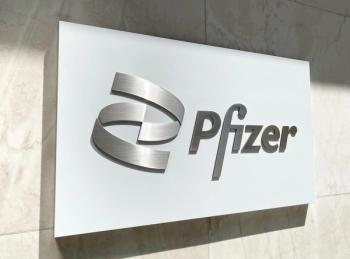
PfizerForAll aims to help improve health care by offering telehealth services, prescription services, vaccination scheduling, and savings programs.

Thyme Care welcomes its new senior vice president to lead initiatives in value-based oncology care.

Aetna has become the first major US insurer to expand access to fertility services by covering intrauterine insemination as a medical benefit for all eligible plans, marking a significant move toward greater equity in family-building options for people of all backgrounds.

Medicare has not clearly defined what constitutes "established cardiovascular disease," leading to variability in potential patient eligibility; therefore, researchers aimed to estimate the number of Medicare beneficiaries who would become newly eligible for semaglutide under different definitions.

Learn more about the negotiated Medicare drug prices and what the FDA's rejection of therapeutic MDMA means for mental health care through expert reactions. Other highlights include pharmacy-based HIV care, gaps in care for gastrointestinal stromal tumors, and the obesity epidemic.

The growing utilization of long-acting injectable (LAI) medications for treating patients with schizophrenia indicates a positive trend in mental health practice, according to Brooke Kempf, PMHNP, Indiana University Indianapolis.

The majority of federal savings indicated by the Inflation Reduction Act's Drug Price Negotiation Program can be attributed to 3 drugs.

Changes in formulary coverage for 2024 are impacting Medicare patients' access to and ability to afford various prescription medications.

CDC data from 2021 show the lifetime cost of treating syphilis to be $1190.

Some groups praised CMS after it announced the 10 negotiated Medicare drug prices while others criticized its potential impacts on drug competition and development.

Early intervention for idiopathic pulmonary fibrosis (IPF) is crucial due to the high mortality rate, with emerging therapies like nerandomilast showing potential to reduce health care costs by preventing disease progression.

CMS today announced the agreed-upon lower prices for all 10 drugs selected for price negotiations under the Inflation Reduction Act.

Health insurance premiums for 2025 are expected to rise slightly due to higher prescription drug costs and inflation, according to a new analysis from the American Academy of Actuaries.

As the 2024 election approaches, older adults, who comprise more than half of ballots cast, are highly concerned about health care costs, financial scams, and fraud. Concern varies based on gender and political ideology.

While resources and strategies to combat social determinants of health do exist, effectively leveraging them requires a coordinated approach involving supportive policies, technical assistance, community governance, and sustainable financing.

This commentary explores how 2 recently published studies evaluating the clinical benefit of the FDA’s accelerated approval program for oncology drugs came to different conclusions.

Medicare Advantage (MA) enrollment has grown to 32.8 million in 2024, representing 54% of total Medicare spending, with significant variation in enrollment across states and counties.

Medicare Advantage beneficiaries with chronic obstructive pulmonary disease (COPD) who were invited to enroll in a program that reduced inhaler costs and provided medication management had higher inhaler adherence; however, there was no significant impact on exacerbations or overall health care spending.

News surrounding different aspects of health insurance shows changes in weight loss treatment coverage, billing and claims processing errors, and customer service utilization.






